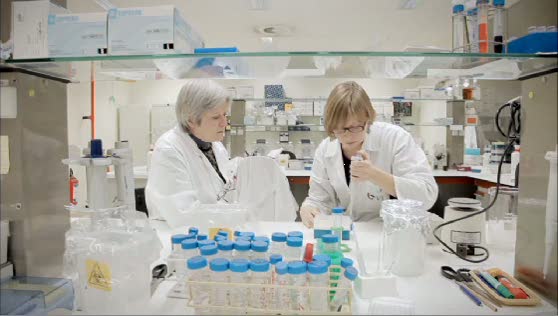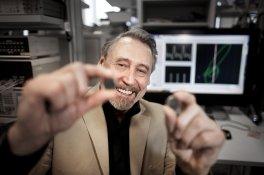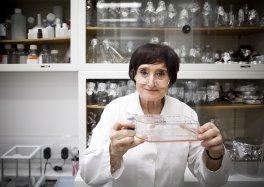Christine Van Broeckhoven
Understanding and combating Alzheimer’s
Winner of the European Inventor Award 2011 in the category Research
Christine Van Broeckhoven's work focuses on neurodegenerative brain diseases, including Alzheimer's disease, frontal temporal lobar degeneration, Parkinson's disease and bipolar disorder.
During her research, she became intrigued by the fact that patients with Down's syndrome, in which a nondisjunction results in a carrier having three copies of chromosome 21 instead of two, developed similar amyloid plaques - protein fragments that accumulate between the nerve cells (neurons) in the brain - to those with Alzheimer's disease.
Van Broeckhoven took a chance and focused her research on chromosome 21, and it paid off in the form of several major contributions to understanding and combating Alzheimer's.
She discovered a mutation in the Flemish and Austrian amyloid precursor protein genes on chromosome 21 in Alzheimer's patients which causes the proteins to aggregate in the brain tissue.
She and her team also identified progranulin as a second common gene for frontal temporal lobar degeneration in which dominant loss-of-function mutations cause neurodegeneration.
Furthermore, they demonstrated genetic and clinical heterogeneity, with progranulin contributing to frontal temporal lobar degeneration, Alzheimer's disease, Parkinson's disease, as well as amyotrophic lateral sclerosis, a form of motor neuron disease.
While to date, no drugs exist that can cure Alzheimer's, there are drugs undergoing human trials that have applied Van Broekhoven's research and offer hope. These include drugs that work in conjunction with secretase enzymes that cut the Amyloid Precursor Protein (APP) gene before it is processed.
The hope is that by changing the way the secretase cuts the gene, beta-amyloid proteins (those that aggregate in the brain) will not be produced, and therefore, not aggregate.
In 2010, the social costs of Alzheimer's disease and other forms of dementia amounted to approximately €453 billion or about one percent of global gross domestic product - costs that could be reduced drastically if the onset could be delayed by even a year.
Van Broeckhoven works in a lab located at the Vlaams Instituut voor Biotechnologie (VIB), the Flanders Institute of Biotechnology, in Belgium where more than 1 200 scientists from over 60 countries perform basic research into the molecular foundations of life.
She can already look back on a decorated career and has received many awards for her research, including the Potamkin Prize, awarded by the American Academy of Neurology, considered the "Nobel Prize of Alzheimer's research".
Contact
European Inventor Award and Young Inventors Prize queries:
european-inventor@epo.org Subscribe to the European Inventor Award newsletterMedia-related queries:
Contact our Press team#InventorAward #YoungInventors



